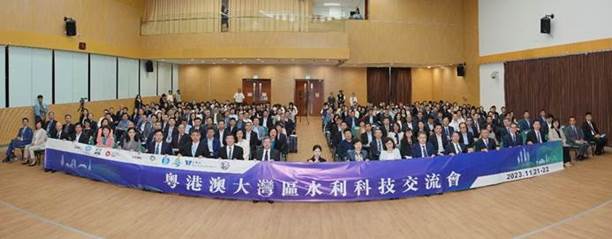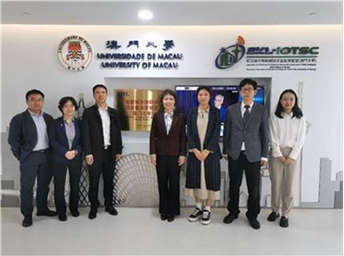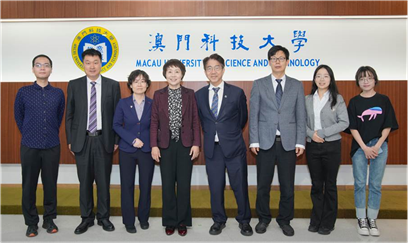An IWHR delegation attended the Guangdong-Hong Kong-Macao Greater Bay Area Seminar for Water Science and Technology, which was jointly hosted by the Department of International Cooperation and Science and Technology of China’s Ministry of Water Resources (MWR), the Macao Maritime Administration and Water Bureau, and the Hong Kong Development Bureau, with IWHR as a co-organizer, at the Macau University of Science and Technology during Nov. 21 to 22.

The development of the Guangdong-Hong Kong-Macao Greater Bay Area (GBA), a megalopolis and an envisioned economically integrated world-class business hub consisting of the Hong Kong and Macau Special Administrative Regions as well as nine cities of the Guangdong Province in South China, has been part of China’s national strategies as well as its practice of the One Country, Two Systems principle since 2019, stated Ms. Zhu Chengqing, China’s Vice Minister of Water Resources in her openning speech.
The MWR, leading China’s water goverance and management, will keep endeavoring for water supply security and ecological environmental protection of the GBA basin. Efforts will be made especially on the improvement of flood control and disaster reduction capabilities as well as the support and guarantee for the high-quality development of water resources in the region, according to Ms. Zhu.
The GBA is viewed as one of China’s three major scientific and technological innovation centers, alongside Beijing and Shanghai, said Dr. Peng Jing, President of IWHR. She expressed her hope that collaborative innovation be carried out to address the critical issues in GBA’s flood control and water supply security brought by the region’s complex river network system, and that high-quality solutions be formed for the region’s development of smart water and protection of river and lake eco-evironment.
Professor Joseph H.W. Lee, President of the Macau University of Science and Technology, conveyed his expectation that the Conference serves as a platform for joint exploration and sharing of water-related macro policies, application practices and academic frontiers issues, making contributions to GBA’s innovation and development in water science and technology.
The Conference aimed to further promote water-related communication and cooperation in GBA, fuel the development of a water technology innovation platform in the region, improve the management of the region’s water resources and flood control capacities, and enhance the water support for Hong Kong and Macao's better integration into China’s national development.
The Conference consisted of four sessions respectively focusing on water supply security, flood control and drought relief, protection of river and lake eco-environment, and smart water development. IWHR experts shared the development of digital twining of watersheds, key technologies and applications for flood prevention, forecasting, early warning and rehearsal and contingency plannning, hydraulic simulation and demonstration of waterlogging in high-density coastal urban cities, system for smart allocation and management of water resources in GBA, etc.
The IWHR delegation also visited Macau University and the Macau University of Science and Technology during the visit in Macau to discuss cooperation in personnel exchanges and research project cooperation.

At Macau University on Nov. 22, the two sides reached a consensus to actively seek policy support and collaborate on research, application, and promotion of digital twining technology focusing on flood control in Macau. Academic exchanges and research collaborations will be promoted and joint research on urban water disasters be propelled. The two sides will also seek stronger cooperation in joint education of graduate students.

At the Macau University of Science and Technology on Nov. 23, Dr. Peng Jing expressed her appreciation for the practical results achieved by the two sides in laboratory construction and research project collaboration. The next step will be to further enhance the quality of outcomes of the “Strategic Scientific and Technological Innovation Cooperation,” a national key R & D project of China jointly funded by the mainland and Macau, and boost the demonstration application of those outcomes in Macau. The two sides will also work together to speed up joint research on ecological and environmental issues in the context of climate change at China’s national field observation research stations established in both the mainland and Macau, based on the country’s national eco-environment monitoring network. Joint training of interdisciplinary graduate students will be carried out to meet the needs of modern water governance in the modern era.